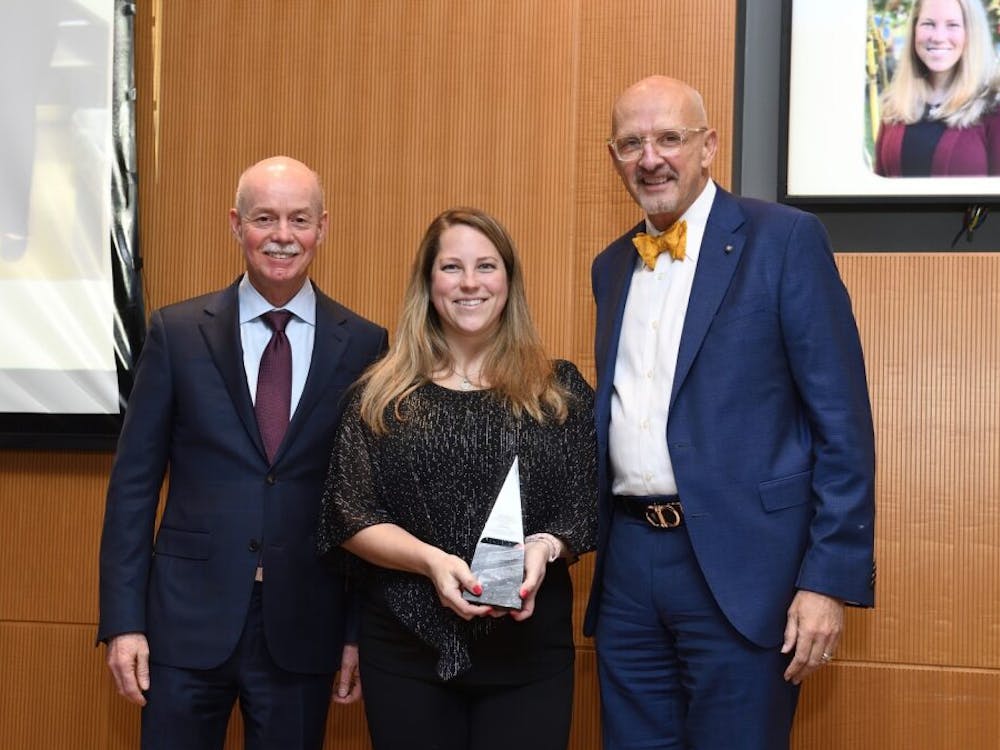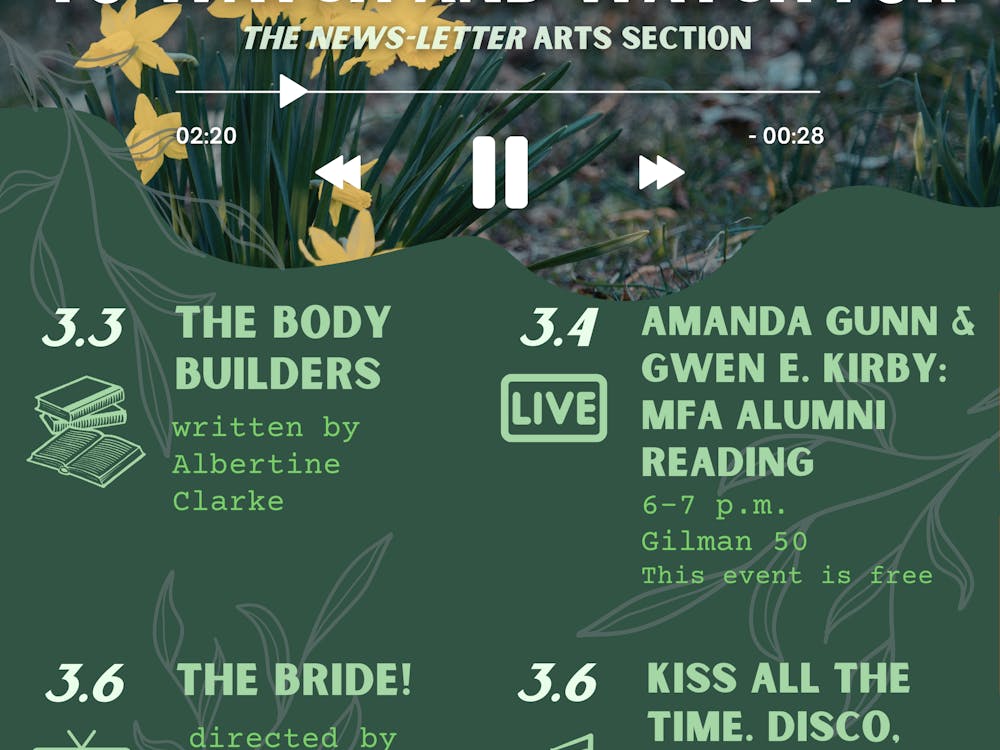Israeli singer, keyboardist and songwriter Idan Raichel performed in the Mattin Center on Monday at a question and answer event co-hosted by the Coalition of Hopkins Activists for Israel (CHAI) and the Hopkins Hillel.
Raichel is well-known for his albums The Idan Raichel Project, Mi’ma’amakim and Within my Walls, among others. He started the “Idan Raichel Project,” which combines singers and music styles from diverse backgrounds in Raichel’s albums.
According to Raichel, some of the 120 singers in the Project were born in Israel while others were immigrants or visitors to the country. They occupy a wide range of religious beliefs, and the youngest singer in the Project was 16 years old while the oldest was 91.
Throughout Monday’s event, Raichel’s performances were interspersed with stories about his philosophy and his experiences. While answering questions from the audience, Raichel occasionally played some chords on the piano. In response to audience requests, he played four of his songs including the well-known “Mi’ma’amakim,” which means “from the depths” and “Bo’ee,” which means “come.”
As he played the songs, he closed his eyes, nodding his head and tapping his feet in time with the music. His hands moved expertly over the piano as he leaned into the microphone and sang the lyrics. His songs, which usually combine Hebrew words with electronic sounds and lyrics in Amharic and Arabic, sounded pleasant yet slightly incomplete when accompanied only by Raichel’s voice and the piano.
Delving into his own musical influences, Raichel explained that his interest in music stemmed from his childhood.
“You’re working on your first album pretty much all your life, since the day you were born,” Raichel said.
In elementary school Raichel played the accordion, which he acknowledged was an “uncool” instrument. He began playing the piano in high school, a relatively late age.
He believes that his childhood experiences influenced his outlook on life in addition to his interest in music. As a child he spent large amounts of time with his grandmother who lost all of her family in the Holocaust.
“Since the age of five or six she was consistently talking about death nonstop with me... The effect that it does for later on is that it pretty much deletes all option to dream... I don’t dream about something, but I do have lots of motivation. What leads me is that I see an interesting door, and I walk in,” he said. “I never had the dream to perform outside of Israel, but every concert outside of Israel is a miracle.”
Raichel served as a musician in the Israeli army for three years, and he said he would have served in the army even if the service were not required.
“Soldiers are the most honest audience after kids. If you suck, they will let you know,” he said.
Raichel later worked as a counselor in a boarding school that had young immigrants from Ethiopia and the USSR.
During this open discussion, one student asked Raichel whether he has received opposition to his songs.
“Many of the songs have biblical quotes, and one of the rabbis in Israel said it’s a total disgrace... I cut it and edit it, and it’s in a pop-ish atmosphere,” he said.
He also said that a notable cantor had commended his use of religious texts because they allow listeners from all over the world to learn about biblical texts.
Raichel added that his Israeli origins also sparked opposition and described a time when protesters stood outside his concert in freezing weather for hours.
“You do have to appreciate the fact that they care so much,” he said.
Raichel related how he and his band members came early to set up the concert so they could offer hot tea to these protestors and talk to them.
“You’ll find that with a true dialogue, there are a lot of things they wouldn’t see and wouldn’t think of, as [would] you,” he said.
Raichel also emphasized his love for folk music.
“Folk music that lasts for hundreds and thousands of years became the DNA of the nation... These songs I love the most,” he said. “In our times, there are songs that can become eternal. I do believe that 700 years from now, in a church in Costa Rica, kids will sing ‘Let It Be.’ They will not know or care who is John Lennon or who is Paul McCartney.”
Raichel concluded his visit by telling a story about two concerts that he recently performed. He was recently invited to perform at the Kennedy Center in front of President Obama on Martin Luther King, Jr. Day.
After his performance, he went straight to the airport, where he boarded a flight back to Israel.
Upon landing, he received a text from a stranger, who said his child was dying of cancer and he wanted Raichel to perform at the hospital. Raichel promptly went to the hospital and played music for the boy and his family.
“I went back home, and I thought to myself, in the past 14 hours I played for Mr. Barack Obama and for this kid, and I think Mr. Barack Obama would agree with me that playing for this kid was something more important this day,” Raichel said.




